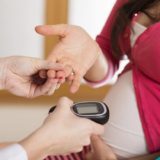
Delaying childbearing has revealed the reproductive limits of women and men.
The infertility rates of nulliparous women increase dramatically with age, from 7%–9% at 15–34 years to 25% at 35–39 years and 30% at 40–44 years. Because older women produce ova of lower quality and their reproductive physiology declines, their risk of infertility increases. Typical causes include endometriosis, uterine leiomyomata, ovulatory dysfunction, and tubal disease. Counselling, medication, and surgery are utilized to treat infertility. The most common medical services for infertile women of reproductive age are clinical examination and reproductive counselling (29%), testing of the woman and her male companion (27%), and ovulation drugs (20%). IVF (7%), hysterectomy (3%), and ART (3%). Infertility treatments can be detrimental to both mother and infant. Ovarian hyperstimulation syndrome (OHSS), which causes ovarian enlargement and abdominal fluid accumulation, is a rare but hazardous side effect of ovulation-inducing drugs. In most cases, OHSS resolves spontaneously within a few days; however, severe cases may necessitate hospitalization and emergent care. Some evidence implies that infertility treatments may increase the risk of gynaecologic or breast cancer. Treatments for infertility have increased the incidence of twin and higher-order multiple births, placing mothers and unborn children in danger. Despite the fact that medical treatment for infertility is effective for many couples, some may require riskier, more expensive treatments.



